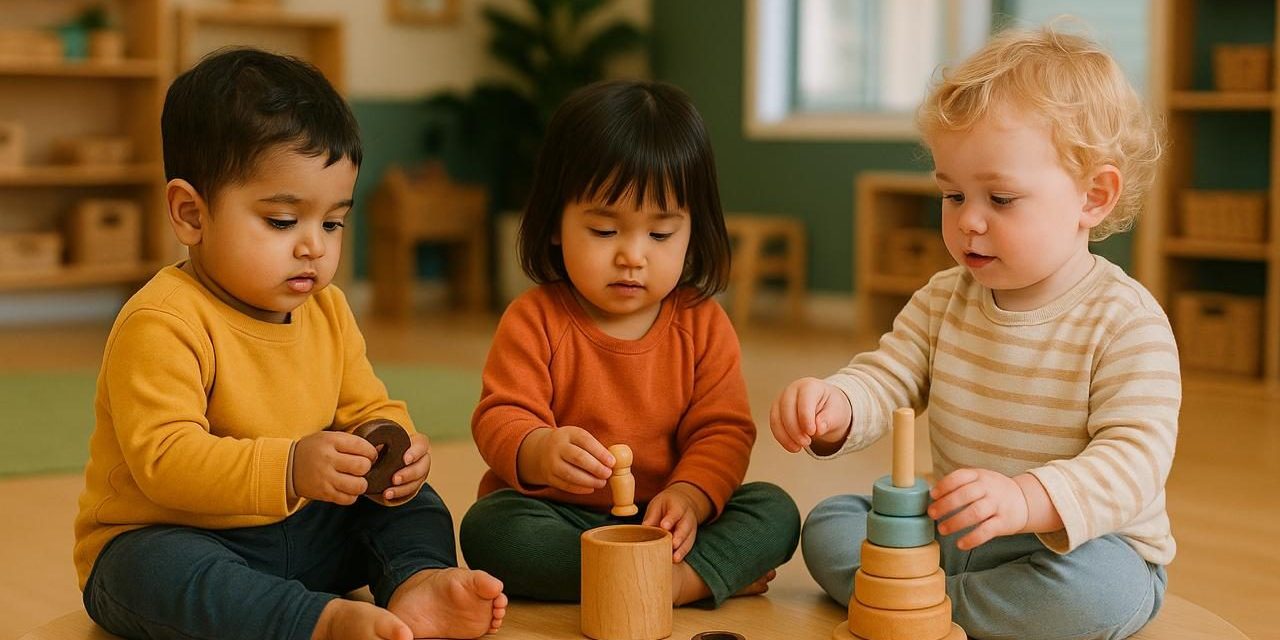The Power of Play: Why Unstructured Time Matters for Young Children
Unstructured play is free, child-led time where children explore, imagine, and create without strict adult direction. It helps toddlers develop creativity, problem-solving skills, social confidence, and a deeper connection to the world around them.
What Is Unstructured Play?
Unstructured play is play without set rules or outcomes. It happens when children:
– Make up their own games
– Choose their own toys or activities
– Explore freely indoors or outdoors
This type of play puts the child in charge, encouraging independence and self-expression.
Key Benefits of Unstructured Play for Toddlers
1. Boosts creativity – Children use imagination to invent games and scenarios.
2. Builds problem-solving skills – They learn to overcome challenges on their own.
3. Encourages social skills – Negotiating, sharing, and taking turns with peers.
4. Improves emotional resilience – Handling small setbacks builds confidence.
5. Supports physical development – Running, climbing, or using fine motor skills in play.
Why It Matters for Kiwi Kids
In New Zealand, we’re lucky to have beaches, bush tracks, and backyards for outdoor play. Nature play lets tamariki:
– Build a love for the outdoors
– Develop balance and coordination
– Connect with our environment in a uniquely Kiwi way
Centres like Nature’s Point Childcare integrate natural materials, open-ended toys, and outdoor exploration into everyday routines, blending play with discovery.
How Much Unstructured Play Does My Child Need?
Experts recommend at least 1–2 hours of unstructured play per day for toddlers. This can be indoors with simple toys or outdoors exploring nature.
Simple Ways to Encourage Unstructured Play
– Leave space in the day without scheduled activities.
– Offer open-ended materials like blocks, scarves, or natural objects.
– Allow “boredom time” to spark creativity.
– Step back – be present but let your child lead.
– Use safe outdoor spaces for free exploration.
Final Thought
Unstructured play is not just “free time”—it’s a powerful tool for your child’s development. By giving them space to explore at their own pace, we’re building creative, confident, and resilient young people.
Frequently Asked Questions about Unstructured Play
What is unstructured play for toddlers?
Unstructured play is child-led free time without fixed rules or outcomes. It allows toddlers to explore, imagine, and create at their own pace, using toys, natural objects, or everyday items.
Why is unstructured play important in early childhood?
It helps children develop creativity, problem-solving skills, social confidence, and emotional resilience. It also supports physical growth through movement and exploration.
How much unstructured play does my child need each day?
Experts recommend 1–2 hours of unstructured play daily for toddlers, split between indoor and outdoor activities.
What are some examples of unstructured play?
Building towers from blocks, pretend cooking in a play kitchen, exploring a garden or bush area, drawing or painting freely, inventing games with friends.
Can unstructured play happen indoors?
Yes. While nature play is valuable, unstructured play can happen anywhere — in a lounge, a daycare playroom, or a quiet reading corner.
How can I encourage unstructured play at home?
Set aside unscheduled time each day, offer open-ended toys and materials, create safe spaces for independent exploration, let your child lead and avoid directing the play.
Does unstructured play improve social skills?
Yes. It helps toddlers learn cooperation, empathy, and communication as they negotiate roles and share ideas with peers.
Is unstructured play recognised in early childhood education in New Zealand?
Yes. Many New Zealand early learning centres, such as Nature’s Point Childcare, include unstructured play as part of their daily curriculum to support holistic child development.




